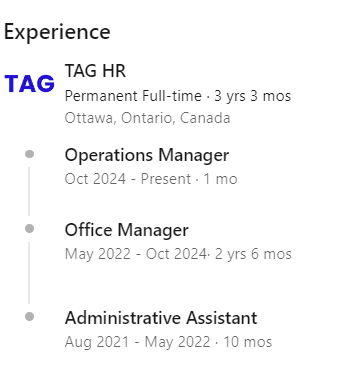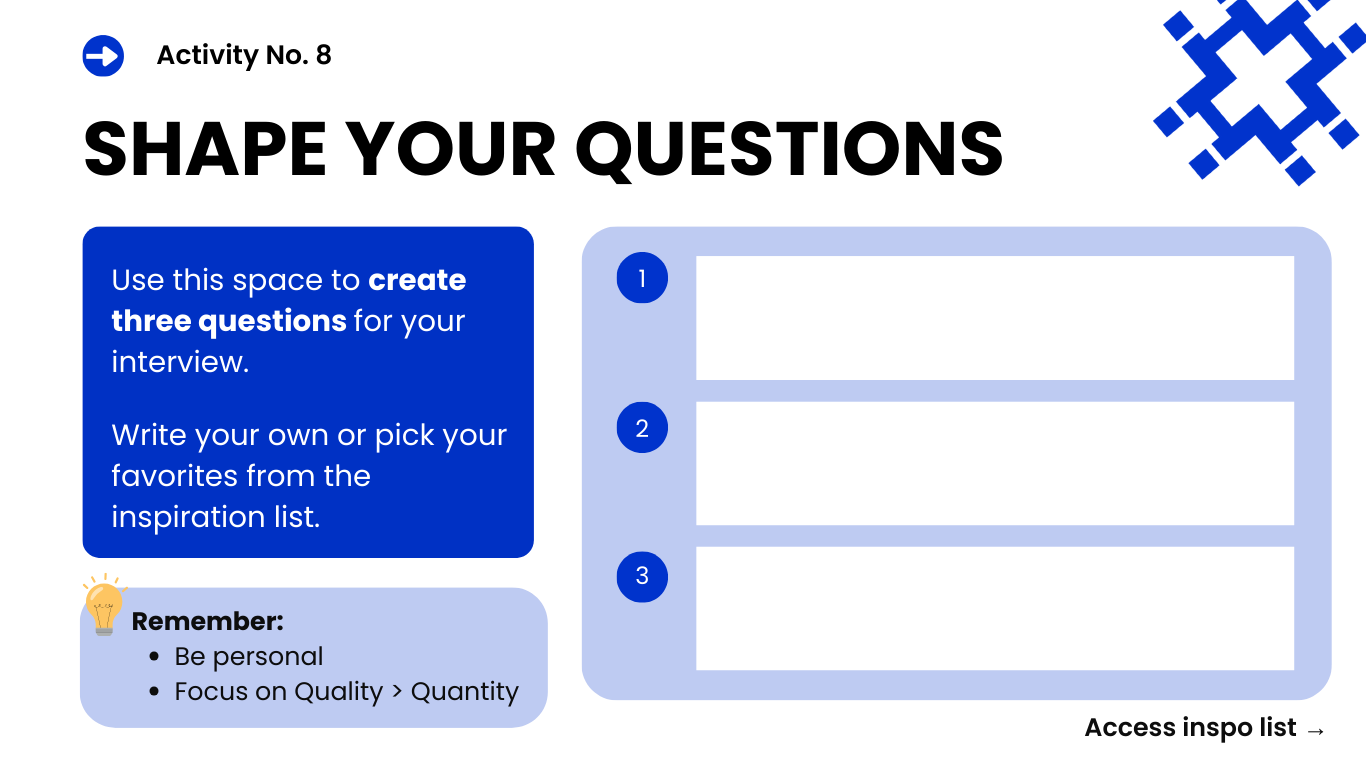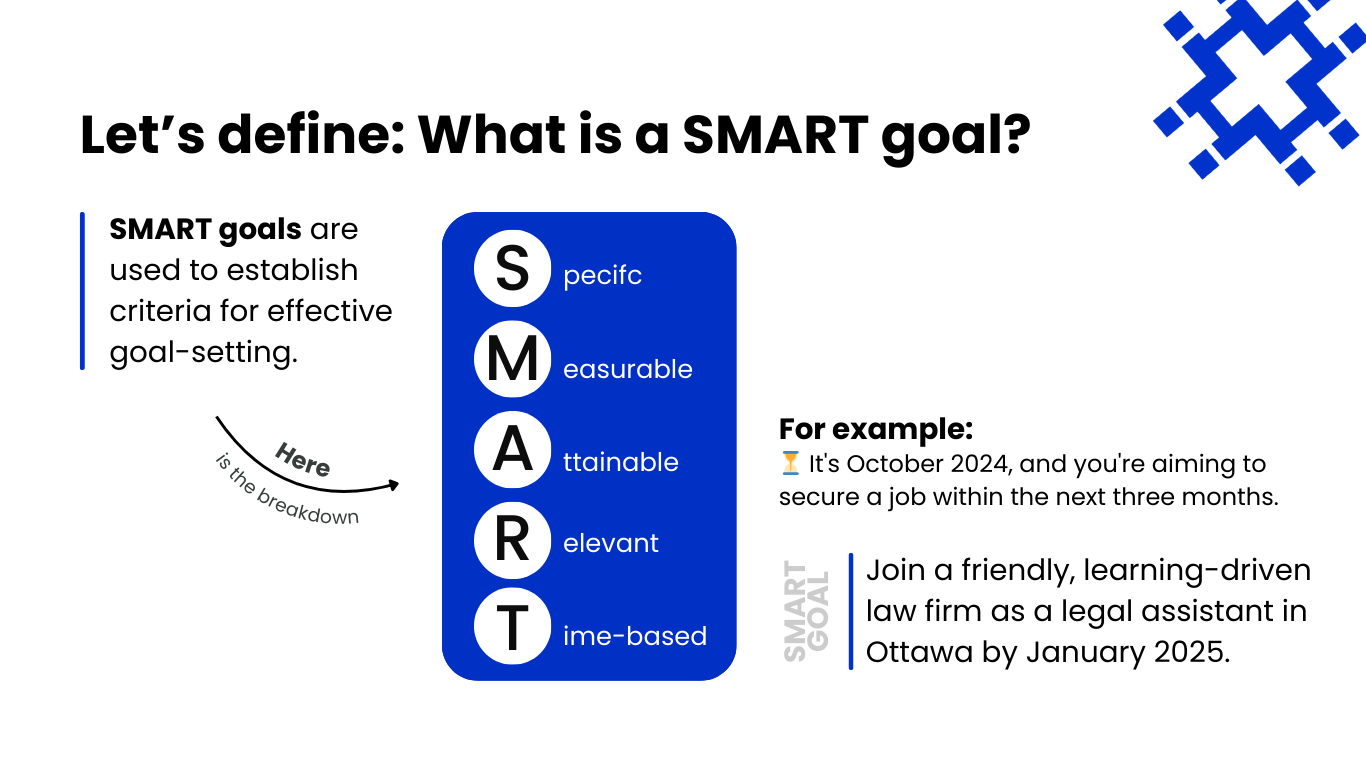How often do you take your own values into consideration when it comes to your next opportunity?
Finding a better job is a lot like finding the right pair of shoes—it’s all about finding the right fit. Otherwise, every step becomes uncomfortable and can really slow you down.

Of course, we understand that considering company culture may not always be on the table. You might be in a pinch or have been unemployed for a while. Sometimes simply having a job in the first place is all that you’re after.
But when you do have the liberty of choice, it’s best to make sure that your next opportunity is somewhere you can grow and thrive.
Taking time to consider whether your next opportunity aligns with your needs comes with a flurry of benefits including: your overall happiness, the length of your stay at the company, and your long-term career growth.
Ideally, this reflection should happen before you even hit “apply,” and always before an interview occurs. That way, you’re not too far down the hiring process if it turns out the role or company isn’t the right fit.
At TAG HR, we always strive for a perfect match between you and our client companies. But only you know yourself best, and you should always do your own research to ensure an opportunity is right for you, your goals and life style.
Be Realistic About Company Culture
Industry norms and expectations usually heavily influence company culture, so it’s important to set realistic expectations for the environment you’re likely to encounter in your career.

For example, you’d expect formality, structure, and hierarchy in a professional services setting such as a law firm or public accounting firm. You’re likely to see a culture prioritizing professionalism, performance, and often long hours during busy seasons. These environments do often offer growth opportunities, like mentorship or professional development, but the pace and style of work lean on the traditional side.
On the contrary, industries like tech, software development, or digital marketing firms are usually more flexible and informal. Companies in these industries tend to focus on fostering creativity, collaboration, and innovation. These organizations are generally fast-paced and results-driven, but you can also expect a more laid-back and casual environment.
Being mindful of these industry trends will help you set realistic expectations of what you can find when applying for jobs. But without a clear understanding of who you are and what you prefer, it’s hard to know if a company’s culture will truly be a good match.
Now, let’s dive into defining your own values and preferences to guide your search for the perfect fit.
Follow along and reflect with us! Make your self-reflection process easier with our FREE workbook.
Who Are You, and What Do You Want?
By determining your values, goals, and what truly matters to you, you’ll gain clarity on what you’re looking for. Even before starting to search for the right workplace that aligns with those needs!

Your Core Values
Your core values are the fingerprints you leave all over everything you do (shout-out to the king of rock and roll, Elvis Presley for the inspiration).
Reflect on how you’d like to be celebrated, your work style, and what type of environment helps you thrive.
Do you value collaboration, innovation or is work-life balance a driving factor for you?
Consider what motivates you, how you prefer to communicate, and what kind of support you expect from your team or leadership.
Understanding your preferences is key to finding a company that fits your needs. When clear on your values, it’s easier to recognize a workplace where you’ll feel valued and fulfilled.
Explore a list of highly valued traits to get started
Your Career Bucket List
With a clear understanding of your values regarding your dream job, it’s time to reflect on the areas for improvement and your professional / personal goals years down the line.

Identifying these will not only help you grow but also guide you toward opportunities that can challenge you in a healthy way.
Reflect on some qualities that you want to have.
Maybe you want to boost your leadership skills—look for roles that offer mentorship programs or leadership opportunities.
Or perhaps you’re aiming to become a better communicator—consider companies that provide coverage for networking events.
Not only will these areas provide you with a clearer sense of healthy challenges your next job can throw your way, but this is also a classic interview question you should prepare for!
Now, let’s zoom out and focus on the bigger picture: What professional accomplishments are on your career bucket list, and how can your employer help you reach them?
When evaluating whether a role is right for you, you must also consider where you’d want to be, and if your next opportunity can help you get there.
Do you want to be nominated for 40-under-40? Be a public speaker? Open your own business? Get certifications or training courses?
Or maybe, you’re not about the 9-to-5 grind and want to focus more on family, or you want to travel the world.
Your next opportunity could provide you with flexibility to help you achieve the work-life balance that you want, or enable you to work anywhere with internet. The world is your oyster!
Consider these goals when evaluating your next opportunity is crucial in finding a role that can bring you closer to where you want to be.
Time to Do Some Research
Now, with a solid idea of your core values, areas for improvement, and overarching career goal, it’s time to open Google and do some good ol’ research.

Industry Research
Familiarize yourself with the current outlook of your industry, even if you’re a well-seasoned professional. This can provide insight into how the job market looks, how long it’d take to find your opportunity and set expectations for your salary range.
When researching the average salary for your position, it’s also crucial to take your location into consideration. Understandably, areas with a high cost of living will provide you with a lucrative compensation package, while areas with a lower cost of living tend to have lower wages.
By staying informed, you can set manageable expectations for yourself regarding how much you can expect, but you can still justify your ideal salary range when it comes to negotiations down the line.
Go Beyond the Job Description
With your industry outlook in mind, you’re ready to apply for jobs.
Before hitting “apply,” remember to research the companies you’re applying to. In addition to the obvious avenues of looking at their Google reviews or a company review site like Glassdoor or Indeed, take time to investigate the company’s website and social media!
Company reviews should always be taken with a grain of salt. People are more likely to leave a negative review, especially after dealing with situations like personal performance issues. Unless the negative reviews are overwhelming, one or two doesn’t necessarily indicate that the company must be avoided!
Company Website
A company’s website can tell you a lot about the business’s mission, values and overall structure.
Check out any press releases, blog posts, or case studies—these can reveal how the company operates, what it prioritizes, and where it’s headed. If it highlights community involvement or ongoing projects, that could be a clue about its values beyond productivity and profits.
Finally, look for any career development opportunities, such as training programs or professional growth initiatives.
Map your values against a company with our workbook and decode employee reviews and company stability.
Social Media
Social media, especially LinkedIn, is a goldmine for gathering valuable intel on a company and its employees.
Look for people who currently hold or have held the position you’re after and check out their career progression.
Have they been promoted or taken on new responsibilities in recent years? This offers insight into the company’s approach to internal growth and mobility. If employees are sticking around for longer than three years and are climbing the ladder, it’s a good sign of long-term growth potential.

However, remember that smaller companies or non-profit organizations may not have a strong social media presence. This doesn’t mean they’ll be a bad fit! This just means that you may have to do additional research, or even reach out to multiple current and past employees for a more personal take on the workplace.
Ask Your Questions
After internal reflection and doing some research on the company, by now you should have a full understanding of what you want for your next opportunity, if the employer in question can help you achieve your goals, and a sense of the overall company culture.
Now, it’s time to ask the right questions for the interview and confirm if this is the right fit for you.
You should never go into an interview without prepared questions! This is the perfect opportunity for you to evaluate the company and how you will fit in.
Prepare three to five solid questions that came up during your research – ask more about a recent team event you might’ve seen on LinkedIn, recent projects or information regarding their professional development program!
Don’t overwhelm your interviewer with too many questions. Prioritize the one or two that are most important to you during the interview itself—even five can be a lot, and you might not remember them all on the spot.
If one of your questions is highly specific, give the hiring manager time to gather more information in a follow-up email. Plus, you can always ask any remaining questions in your thank-you message after the interview!

Prep for your interview questions
Follow along with the workbook on questions you can ask to evaluate how well the company aligns with your needs!
Take Time to Reflect
Once the interview wraps up, take time for some post-interview reflection. The first 15 minutes after the interview are critical in recalling key information and discussion points.
Did anything stand out as a red flag? Or positive signs that this is the right place for you? These insights will be invaluable in making your final decision.
Congratulations! You’ve done the hard work to figure out what you want in your next opportunity and made it through the interview process. But it doesn’t end here.

Remember that while an employer builds the foundation, you play a vital role in bringing the team culture to life.
You got the job because they believe you’re a good fit for their team—now it’s time to walk the talk and bring your unique values and strengths to the table. Whether it’s by fostering collaboration, creating connections, or simply being a supportive team player, you contribute to the environment you want every day.
By bringing your best self forward and aligning with the company’s vision, you help create the happy workplace you were searching for from the start —so let your personality and values shine through!

